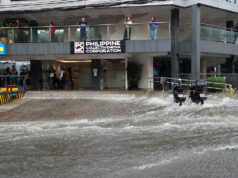Vaccination plateau and rising cases, Part 2
By Bienvenido S. Oplas, Jr.
This is a follow-up to this column’s Sept. 20 piece (https://www.bworldonline.com/vaccination-plateau-and-rising-cases/), and also complements a BusinessWorld Nation story yesterday about the government plan of compulsory vaccination, “Analysts warn against compulsory vaccination” (https://www.bworldonline.com/analysts-warn-against-compulsory-vaccination/).
People’s movements and the 2022 presidential election
By Diana J. Mendoza
Elections are the means to s/elect leaders and governments. Through elections, we can hold leaders and governments accountable, although with varying success.
It’s Not Easy Being Green: Balancing energy security and decarbonization for an emerging economy
By Romeo L. Bernardo
It is not often that we can take solace as a lower middle-income country, as we move a few paces behind the developed world’s progress. However, as I sit back and watch the 2021 global energy crisis unfold, I take comfort in knowing that being behind the curve also means having the opportunity to learn from experiences of those ahead of us.
Fuel taxes amid the crisis
By Filomeno S. Sta. Ana III
Oil prices are soaring. The explanation boils down to supply and demand. Supply is tight, and demand is climbing in the wake of a nascent global recovery. But the hardship and impoverishment brought about by the pandemic and the attendant crisis have made oil prices a politically sensitive issue.
The food delivery wave
By Andrew J. Masigan
The restaurant industry is among the most affected sectors in this pandemic. Not only have the lockdowns curtailed dine-in sales, the fear of infection continues to discourage millions from going out and patronizing their favorite restaurants.
Disagreement fatigue
By Amelia H. C. Ylagan
Listening to Bishop Robert Barron on his Word on Fire videocast while having a lethargic breakfast. He does spark some energy over a seemingly predetermined day of continued languishing in the long-playing COVID pandemic.
Fighting poverty: Learning from the ground
By Diwa C. Guinigundo
Ten years ago, Indonesia struggled with its largest social assistance program. Its Raskin, Rice for the Poor Program, was allocated $1.5 billion a year but was almost always whittled down by bureaucracy and corruption, frustrating the goal of distributing 15 kilos of rice a month to the poorest of the poor.
Rush to ‘normalcy’
By Luis V. Teodoro
Enough vehicles are again traversing them to tie up traffic on such major National Capital Region (NCR) thoroughfares as EDSA. All-night drinking sessions are back, and so are visits to this or that tourist destination.
Child protection and mental health
By Maria Victoria Rufino
The 13th annual Ako Para Sa Bata (APSB) Conference had been transformed into a series of webinars. In 2020, the pandemic lockdown made the organizers design a series of weekly webinars from September to November.
Climate change will kill national sovereignty as we know it
By Andreas Kluth
AS WE collectively hurtle into the era of climate change, international relations as we’ve known them for almost four centuries will change beyond recognition. This shift is probably inevitable, and possibly even necessary. But it will also cause new conflicts, and therefore war and suffering.
Banks are to manage sustainability risks, and what if they don’t?
By Daniela Luz Laurel
So many exciting things going on this week, despite the long weekend holiday: an Econ data dump including trade, IHS Markit, PMI, employment, a Fed Meeting over in the US, at least 10 blue chip stocks to report third quarter earnings and many pivotal decisions on reopening the economy, including public transport now moving up to 70% capacity, and the possibility that with a lowering of the capital’s COVID-19 restrictions to Alert Level 2 we may truly be on our way back to a normal life.

















